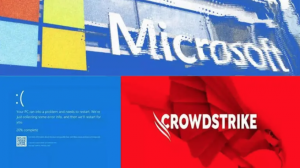Australia set to introduce digital ID passport for work skills

The federal government will spend almost $10 million to roll out a ‘National Skills Passport’ that will ‘assist jobseekers to streamline their employment’ online.
NEW ‘SKILLS’ PASSPORT?
Australian job seekers will soon be able to “store and share verified job skills and qualifications with employers” through a newly-announced National Digital Skills Passport.
This passport would function as a digital ID for job qualifications.
Jim Chalmers, Jason Clare and Brendan O’Connor confirmed the government’s plans to spend $9.1 million to “…support a business case for creating the digital skills passport in consultation with industry, unions, tertiary institutions, and students on its scope and function”.
What we are talking about here is a centralised repository of workplace credentials all stored on a digital ID system, including an individual’s education and training qualifications, high school, university and training, and other details you would find in the typical resume.
But unlike a resume, an employer can simply bring up you ‘profile’ to view your potential skills.
The government says this passport information “…can be easily shared with employers, providing a more streamlined location to store and access applicant data. It also gives employers greater assurance that the skills and qualifications are accurate, which can lead to significant cost and time efficiencies.”
It is yet another step in Australia’s push to digitally transform the nation.
This initiative forms part of the government’s efforts to promote ‘lifelong learning’, which is a key reform direction outlined in an Employment White Paper.
Clare addressed the need for this program, stating:
“A national skills passport could make it easier for employees to demonstrate the skills they have and for employers to have confidence that employees have the skills they need.”
Although this doesn’t seem like much on the surface level, this should raise immediate red flags.
The question now becomes, with constant pushes towards ‘convenience’ and ‘digital streamlining’, how long will it take for this to become the preferred, or even required, way to apply for jobs?
The university sector and employer groups also support the concept of a digital ID for work credentials.
According to the Universities Accord Report:
“A national skills passport could build on the National Credentials Platform (NCP), which aims to be a secure digital platform for students and graduates to access, compile, display, and share their higher education qualifications, micro-credentials, and general capabilities.”
The Business Council of Australia’s chief executive, Bran Black, endorses the passport idea, stating,
“The Business Council has long advocated for a skills passport and a national framework for a digital, portable skills sharing system, and today’s announcement is a game changer.”
In fact, it is hard to find any opposition to these moves at all.
Introducing centralised platforms to carry ‘secure’ identity credentials is a major pillar of the Australian government’s national digital ID plan, which is in the midst of a ‘public awareness push‘.
We shouldn’t be so quick as to not see where this is heading.
The announcement follows other ‘interesting’ shakeups to the employment sector, including new social credit system-type ‘points’ that jobseekers must achieve every month to get paid.
We also know that myGov, the government’s central hub for services, is set to be a major underlying factor in this digital identity transition, as more programs become incorporated into them.
It is clear now that instead of introducing one singular move for a digital identity plan, which failed in 2019, the slow creep transformation will be brought in by each and every sector individually.
But no doubt, the regulators behind these industries will likely require all of them to incorporate their systems into some type of government database or code, connecting it all behind the scenes.
DIGITAL ID AGENDA
Other Australian industries, particularly the banking sector, are moving to introduce their own digital identity frameworks, with ‘secure checking’ services set to be rolled out this year.
On a state level, governments are also incorporating these plans into their own services apps, following the myGov framework that lets users create their own digital ID for ‘easy login’.
But remember how we spoke on how these programs will connect to a larger system?
This system will be centralised inside of government databases behind the scenes.
We first raised the alarm on the rapid shift to digital identification and licenses back in 2018, half a decade ago, outlining the possible Orwellian scenarios that could emerge if this was let to continue.
In 2021, during lockdowns and fresh off Victorian police firing on protesters, the federal government moved behind the scenes to establish an oversight body to ‘regulate’ new plans in the works.
In August, the federal government released a detailed strategy on how the hope to roll out digital identify programs, both in the short term and long term, and the challenges they will face in the process.
Australians once rallied in the tens of thousands to resist a national ID card, understanding how this ‘secure move’ is a track-and-trace program gateway to total control.
But today, in the digital age and in a new generation, there is little-to-no-resistance at all.
Just keep the masses distracted, dumbed down and in search of the easiest option, and you’ve got them.
Do you think this new ‘National Skills Passport’ spells trouble for the future of employment?
Or am I too much of a ‘conspiracy theorist’?
Source: https://tottnews.com/2023/09/29/australia-national-skills-passport/








